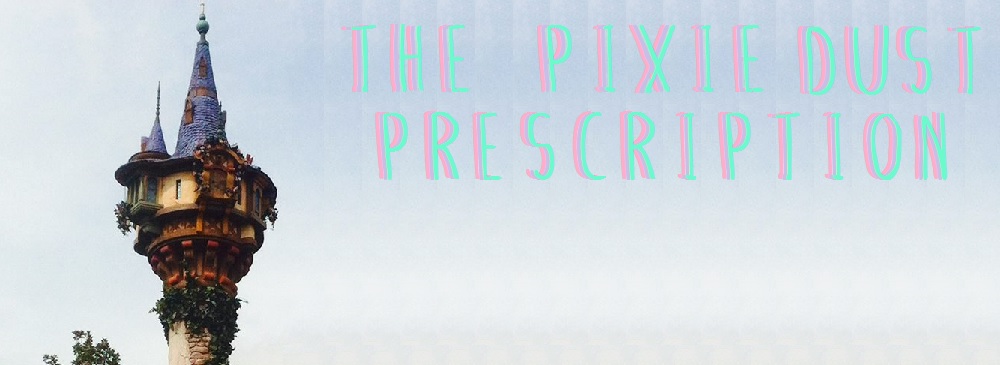 We have established by this point, I love Disney films.
We have established by this point, I love Disney films.
So, when the Pixar studios released another wonderfully creative film heavy in both concept and characters, I was clearly first in line, right?
No way.
No way.
I know Pixar, and considering the studio's track record for energising inanimate objects with more emotion and vibrancy than most people I know are capable of: there was every possibility that whatever they came up with using actual emotions would be too much for me.
You're talking to someone who cries at Cinderella castle image at the beginning of all the newer Disney films.
Well, I went along to see it a few days ago. All the emotions are inhabitants of an 11-year-old girl's head, and we watch the emotions navigate Riley's growth and her temperament. Whilst on the job, Joy, Anger, Fear, Disgust and Sadness log important memories, experiences, likes and dislikes to form Riley's personality as she grows up.
Joy is Riley's primary emotion, acting as a perennially delightful beacon of positivity. The others get their time at the 'controls' of Riley's mind but Joy cleans up most of the messes and keeps things cheerful and positive.
Yep, all the emotions have a place in Riley's head. Except for Sadness.
Speaking to friends after I saw the film, one commented that they wanted 'to punch Sadness in the face' the whole way through. Fair comment, negativity can be grating for those around us. As someone with depression, I know this all too well.
"Crying helps me slow down and obsess over the weight of life's problems."
-Sadness, Inside Out
Joy routinely excludes Sadness, and every experience or memory that Sadness touches turns sad. Sad, here meaning, bad. As Riley is a young girl, her life has been largely very happy, and the emotions at the helm of her brain are scared of what would happen if Sadness was allowed to navigate Riley's life.
Through a series of events meaning Joy has to abandon the controls of Riley's mind to retrieve her 'core memories' from the maze of her head, the displacement of Riley's primary emotion takes a huge toll.
But through her sadness, to cut a very long and weepy (for me) story short, Riley becomes wiser and more self-aware. Simultaneously, Joy comes to realise that without Sadness, nothing can quantify the happiness and high points of her 'career' as Riley's key emotion.
Through a series of events meaning Joy has to abandon the controls of Riley's mind to retrieve her 'core memories' from the maze of her head, the displacement of Riley's primary emotion takes a huge toll.
But through her sadness, to cut a very long and weepy (for me) story short, Riley becomes wiser and more self-aware. Simultaneously, Joy comes to realise that without Sadness, nothing can quantify the happiness and high points of her 'career' as Riley's key emotion.
Inside Out tells those of us with depression one very important thing. Sadness is an incredibly important part of our mind. Times of sadness make the brighter moments of life so much more beautiful. Crying, addressing the sadness within us all, even if we don't understand it; gives it a place in our lives. Until we handle sadness as it is meant to be, it will creep into every area of our lives uninvited in search of a home. That is what depression means to me.
One of Riley's earliest moments of frustration and sadness, resulting in the collapse of one of her 'personality islands' started the waterworks for me, and until the end credits they didn't stop.
No one has ever made it this simple for me.
Depression made things, people and pastimes I love seem bleak and uninspiring. Old loves went away and even being confronted with interests the 'old' me had could be very triggering to me.
Why do we ignore or demon-ize sadness? Society told those of us with depression to just expel the negativity from our lives. Ignore it. Give it no home in your head.
But who would Riley have been without Sadness? Sadness brings understanding, empathy and connections to other people.
Sometimes having depression feels like the loneliest state of mind you could ever be in, and you don't even get a say in when your own apathetic mood hits most of the time.
Inside Out teaches, so incredibly simply by the way, that sadness is totally essential to our human growth. It doesn't excuse it. It doesn't green-light pessimism or negativity. Within Inside Out, one constant of emotion is entirely unsustainable, be it happy or sad. It is more than okay to feel the full spectrum of emotion that life triggers in your brain's control centre.
Because each bite out of a red velvet cupcake with your name all over it is far sweeter contrasted against every nauseating sip of that green tea that's supposed to do you some good.
Nothing makes you thankful for the comfort of your own bed like your car breaking down on the darkest, most desolate and Transylvanian-looking road you had never noticed on your daily commute home.
Because looking down Main Street, U.S.A. on a quiet November morning in Orlando holding the hand of the person you love sure seems a lot more magical when you are certain you almost didn't make it there.




